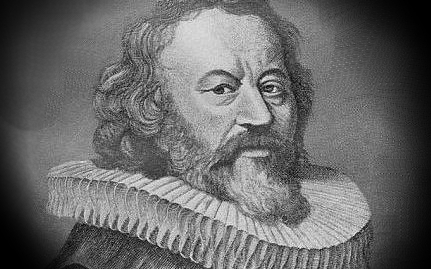Every year on Pentecost, most of the posts I see on social media are about how Pentecostals are wrong on the Holy Spirit, gifts, and tongues.
While it is a good thing to sound off on erroneous views widely held by many Christians today, it is also important to promote the biblical one in its place. Hence, instead of bashing Pentecostals this year, I thought it would be great to focus on the significance of Pentecost, and the proper understanding of the Holy Spirit. To this end, we turn to the devotional work of Gerhard in Sacred Meditations.
The Holy Spirit brings the Gospel.
Gerhard frames the sending of the Holy Spirit of Pentecost in terms of Law and Gospel by comparing the event with the giving of the law in Mount Sinai:
Under the old economy, when God delivered the law on Mount Sinai, He descended from heaven and appeared to His servant Moses; so when the gospel was to be preached in all the world by the apostles, the Holy Spirit descended upon the waiting apostles. There on Sinai there were “thunders and lightnings, and the voice of the trumpet exceeding loud” (Ex. xix. 16), because the law thunders against our disobedience, and convicts us of sin and as under the blazing wrath of God; but here on Pentecost is a sound as of a gently murmuring wind, for the reason that the proclamation of the gospel brings good cheer to our terrified minds. There alarm and terror seized all the people, because the law worketh wrath (Rom. iv. 15); but here the whole multitude came together to hear the wonderful things of God, because the gospel reveals to men the way of approach to God. On Sinai Jehovah descended in fire, but in the fire of holy wrath and indignation against sin, and the whole mountain quaked greatly, and the smoke thereof ascended as the smoke of a furnace (Ex. xix. 18); but here on the Day of Pentecost Jehovah, the Holy Spirit, also descends in fire, but in the fire of love and holy affection, so that the house where the disciples were sitting (Acts ii. 2) is not shaken with any manifestation of the divine wrath, but the whole house is filled with the manifested glory of the Holy Spirit.
Johann, Gerhard, Sacred Meditations, Meditation XXII
The good news of Christ’s redemptive work for us is thus made known to the world by the Holy Spirit, bringing us eternal salvation.
The Holy Spirit leads us in prayer.
When I was a charismatic, I was taught that one prays in the Holy Spirit when one speaks in tongues based on a faulty interpretation of Romans 8:26.
Likewise the Spirit also helps in our weaknesses. For we do not know what we should pray for as we ought, but the Spirit Himself makes intercession for us with groanings which cannot be uttered.
Romans 8:26
However, the verse is talking more about how the weakness of our own flesh hinders our prayers, and the Spirit intercedes for us. In fact, Gerhard would argue that the Holy Spirit is the one who leads us in every prayer:
The Holy Spirit, moreover, descended upon the apostles while they were continuing with one accord in prayer (Acts i. 14); for the Spirit of prayer is prevailed upon by prayer, and He it is who leads us to pray. And wherefore? Because He is the bond that unites our hearts to God, just as He unites the Son with the Father, and the Father with the Son; for He is the mutual essential love between the Father and the Son. This spiritual union between God and our souls follows upon faith; but faith, the gift of the Spirit, is obtained by prayer, and true prayer is prompted by the Holy Spirit. When incense was offered to the Lord, at the dedication of Solomon’s temple, the glory of the Lord filled the temple (1 Kings viii. 11); thus if thou dost offer unto God the incense of prayer and supplication, the Holy Spirit will fill with His glory the temple of thy heart. Oh, let us admire the mercy and the grace of our God! God the Father promises to hear us when we pray (Ps. 1. 15); God the Son Himself maketh intercession for us (Rom. viii. 34); and God the Holy Spirit indites our prayers, and prays in us (Gal. iv. 6). Holy angels carry our prayers to God; and thus every avenue to the throne of heavenly grace is open to our prayers. The merciful God gives us the disposition to pray, because He bestows upon us the spirit of grace and of prayer; He also makes our prayers effectual, because He always hears them, and answers them; if not according to our desire, yet according to our need.
Sacred Meditations, Meditation XXII
The Holy Spirit as the Spirit of love and concord.
For Gerhard, the Holy Spirit unites us both vertically (to God) and horizontally (to man). Through faith, the Holy Spirit unites us to Christ. This union is compared to the personal union of the two natures of Christ:
But as the Holy Spirit united the divine and human natures in Christ by His own overshadowing power (Luke i. 35), so also by the outpouring of His gracious gifts upon us He unites us to God and God to us. As long as the Holy Spirit abides in a man, filling him with His gracious gifts, so long does that man abide in a holy union with God. And just as soon as a man through sin falls away from faith and love, and banishes the Holy Spirit from his heart, he is alienated from God, and the blessed union between God and his soul is destroyed.
This vertical union with God then, brings forth the horizontal union with our fellow man, as Christians all over the world partake in the mystical body of Christ (i.e. the Church).
He who hath the Holy Spirit hateth not his brother, and why”? Because by the Holy Spirit he is made a partaker of the mystical body of Christ, whose members include all godly souls; but who ever yet hated the members of his own body (Eph. v. 29)? Nay more, he who is ruled by the Spirit of God will even love his enemies; because he “who is joined unto the Lord is made one spirit” with Him (1 Cor. vi. 17). God maketh His sun to rise on the evil and the good (Matt. v. 45), and hateth nothing that He hath made. He who has the Spirit of God is ready to serve all who need his help; he does good to all men, as far as in him lies; he spends himself for the good of others, and all this because God is the fountain of all compassion and grace towards all men. Now the Holy Spirit excites His own peculiar impulses and emotions in men; just as the soul makes the body living, sentient, active, so the Spirit makes a man spiritual. He fills our minds with heavenly delights, and directs the whole man in rendering obedience to God, and in his duty to his fellow-man.
The Holy Spirit makes us holy.
Gerhard proceeds to connect how the Holy Spirit is described on the day of Pentecost with His role in the Christian life.
The Holy Spirit as a ‘sound from heaven’ (Acts 2:2):
That sound, the symbol of the Holy Spirit, came from heaven, because the Holy Spirit is heavenly in His nature, being of the same essence with the Father and the Son, and proceeding, from all eternity, from the Father and the Son. He it is who leads us to think upon heavenly things and to seek those things that are above; he who sets his affections upon the world and worldly things has not yet been made a partaker of the heavenly Spirit.
The Holy Spirit as a ‘rushing, mighty wind’ (Acts 2:2):
The Holy Spirit came under the emblem of a breath of air, because He imparts living consolation to afflicted souls, and because by an alternate inspiration and expiration, or a breath of air, we sustain this present bodily life. So He came under the emblem of a breath, and of a breathing, who alone gives us the power to live the spiritual life. “The wind bloweth where it listeth, and thou hearest the sound thereof, but canst not tell whence it cometh and whither it goeth; so is every one that is born of the Spirit” (John iii. 8). It was appropriate that He should come like unto wind, since He proceeds from the Father and the Son by an eternal breath. The sound came as of a rushing mighty wind, figuring thus the power of the Holy Spirit’s gracious work in our hearts. This Holy Spirit impels the godly to every good work (Rom. viii. 14), and so influences and controls them that they regard not the tyrant’s threats, nor Satan’s snares, nor the world’s hatred.
The gifting of tongues (Acts 2:4) as a lifting of the curse from the tower of Babel:
He confers upon the apostles the gift of tongues, because their sound is to go out into all the earth (Ps. xix. 4), and thus the confusion of tongues (Gen. xi. 7), inflicted as a punishment upon the proud and rash builders of the tower of Babel, was removed, and the natives of the earth, scattered and separated through diversity of language, are brought together in the unity of the faith through the gift of the Holy Spirit. Fitly did He come under the figure of tongues, moved by whom holy men of God spake in old time (2 Peter i. 21), who spake through the holy apostles, and who now puts the word of God into the mouth of the ministers of the Church.
You can read the full book for free here.

